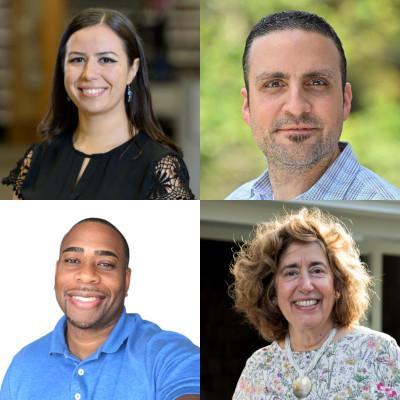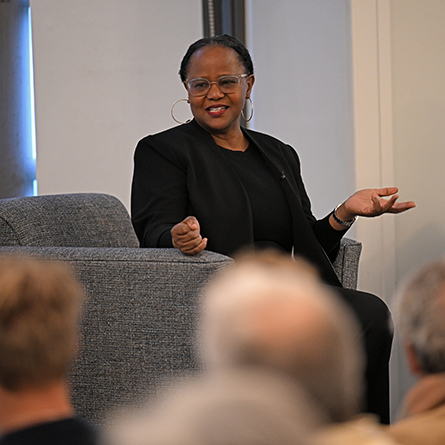
Summer Language Challenge: Conn community commits to studying 23 languages
For the next six weeks, 170 members of the Connecticut College community are participating in a Summer Language Challenge, working in teams to improve their language ability by setting individual goals, logging daily activities, sharing online resources and helping each other stay motivated.
So far, students, staff, faculty members and their families have committed to studying 23 different languages: American Sign Language, Arabic, Bulgarian, Dutch, Farsi, Finnish, French, German, Hebrew, Italian, Japanese, Korean, Latin, Mandarin, Modern Greek, Norwegian, Polish, Portuguese, Russian, Spanish, Tajik, Urdu and Vietnamese.
“We launched this new initiative to fill the void created by canceled international travel and in-person language programs, to help students make progress in a language through learner-driven activities, and to strengthen connections between members of our community during the pandemic,” said Andrea Lanoux, Kruidenier Professor of Slavic Studies and director of the College’s Toor Cummings Center for International Studies & the Liberal Arts (CISLA).
“In a brainstorming session with Director of the Global Learning Lab Laura Little, we came up with the Summer Language Challenge as a way to help students stay focused and motivated, and connect with one another. We decided to open it up to all members of the Conn College community since everyone’s at home now, so why not learn a language?”
Participation is free and not for credit. The challenge, a joint venture of CISLA and the Otto and Fran Walter Commons for Global Study and Engagement, is open to all members of the Conn community, including incoming first-year students.
Participants join teams of three to eight people who are studying the same language at any level. The challenge runs July 6 through Aug. 15, and each week is themed and includes both daily and weekly challenges. The individuals and teams logging the most time over the six weeks will win prizes, and the top 20 participants who log over 100 hours will be invited to take the ACTFL Oral Proficiency Interview (OPI) for free to assess their language proficiency.
Lanoux says three Walter Commons interns, Anzhela Mirzoeva ’23, Mingyur Paldon ’23 and Jordan Groff ’22, are the driving force behind the challenge. “All of them are multilingual with deep experiences in learning languages themselves, and they are bringing incredible energy and creativity to this project,” she said. A fourth intern, Jacob Nozaki ’22, is working on another initiative that will launch later in July, The Global COVID Project, a collective research project to study the local effects of COVID-19 around the globe. That project will be the centerpiece of Lanoux’s first-year seminar, “Global COVID,” to be taught this fall.
Groff, a CISLA scholar and international relations and German studies double major, says he got involved with the challenge to share his love of language learning and the linguistic and motivational strategies that make languages so fascinating to him. He began learning German a few years ago, and has since studied some French and Bengali.
While Groff says he is looking forward to each of the weekly themes, which include music, books and stories, movies, humor, slang and culture, he’s especially excited about exploring the week five theme of slang.
“I expect this to be something that everyone can get a lot out of and will really enjoy. They will be learning things that people actually say all the time, but yet are almost never discussed or taught in traditional classes. We express anger, joy, satisfaction and other emotions through slang. Trying to speak a language without it is possible, but you'll tend to get stuck or sound like a robot whenever something surprising happens to you,” he said.
Groff added the challenge gives students a chance to interact with staff and faculty members in ways they wouldn’t normally.
“I think this is an especially valuable opportunity for the many incoming first year students in the challenge, who are getting to meet other students, faculty and staff before they even step foot on campus,” he said.

